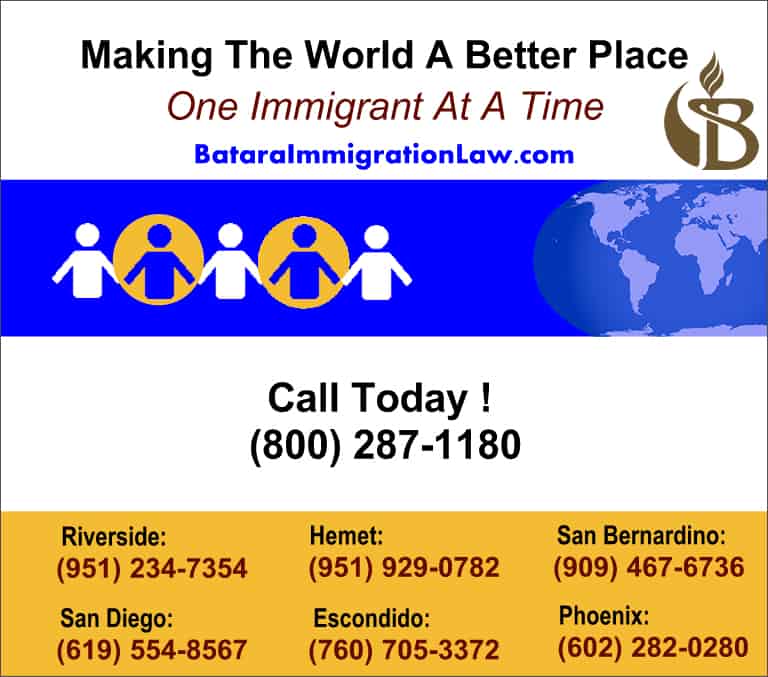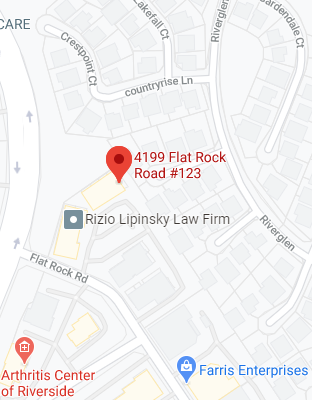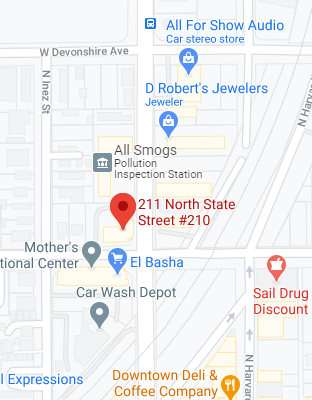
To understand many of the flaws in our immigration system today, you need to know how immigration law was transformed, or perhaps more appropriately, deformed, by changes dating back to 1996.
These measures continue to haunt immigrant families even now, nearly 30 years later.
To illustrate, consider the above circle to represent the pool of immigrants eligible to become legal residents at the start of 1996.
Things changed with the passage in 1996 of IIRAIRA, the Illegal Immigration Reform And Responsibility Act Of 1996, and its implementation the following year.
The Illegal Immigration Reform And Immigrant Responsibility Act Of 1996
One set of IIRAIRA’s changes tightened rules directly impacting permanent resident applicants. This included the following:
- Tightening the adjustment of status process and creating the I-601 waivers provisions.
- Expanding the list of aggravated felonies, transforming several non-violent crimes from criminal misdemeanors into disqualifying offences.
- Increasing the required amount of years to ask for “forgiveness” based on hardship to specific family members from 7 to 10 years at immigration court.
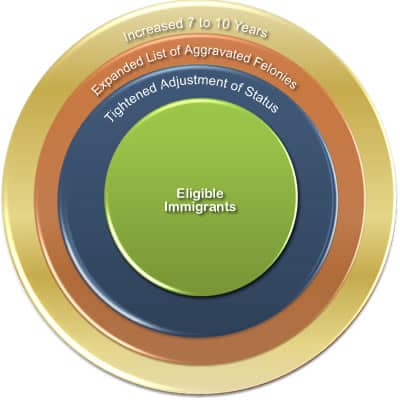
A second set of rules, continuing into the early part of 2000, limited the ability of immigrants to win permanent residency via immigration court hearings and deportation defense trials.
The government removed “suspension of deportation” as an defensive option for immigrants facing deportation at court and replaced it with “cancellation of removal”. As part of this process, in addition from the increase to 10 years of residence in the U.S., the following immigration law changes occurred:
Imposing a stricter hardship standard, (a) by removing the immigrant’s personal hardship from consideration by the court, and (b) changing the requisite proof of hardship from “extreme” to “extremely unusual and exceptional”.
Limiting the grounds for immigrants to challenge the basis of negative decisions on appeal.
The net effect? The circle below tells the story.
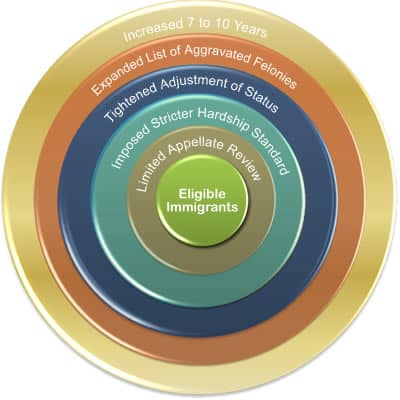
Recommended Reading:
Ready to take a serious and honest look at the strengths and weaknesses of your immigration case? Let’s get started with a personalized strategy and planning session . . .
Here's How It Works
1
Call Our Office
Immigration law doesn’t have to be confusing. You don’t have to live in fear of being deported and separated from your family. A comprehensive 30-minute Strategy And Planning Session will take the stress out of not knowing your options first-hand.
2
Meet With Carlos
Every case is unique. We refuse to take cookie-cutter approaches to your case. After we discuss the ins and outs of your immigration and family situation, Carlos will outline your chances for success and how to overcome obstacles standing in your way.
3
No Pressure - No False
Promises
Hiring a lawyer is a big investment, and we will not pressure you to hire us or push you into a plan you don’t understand. If we cannot help you, we will tell you. We will not take your case, unless we believe we can make a difference for you and your family.
